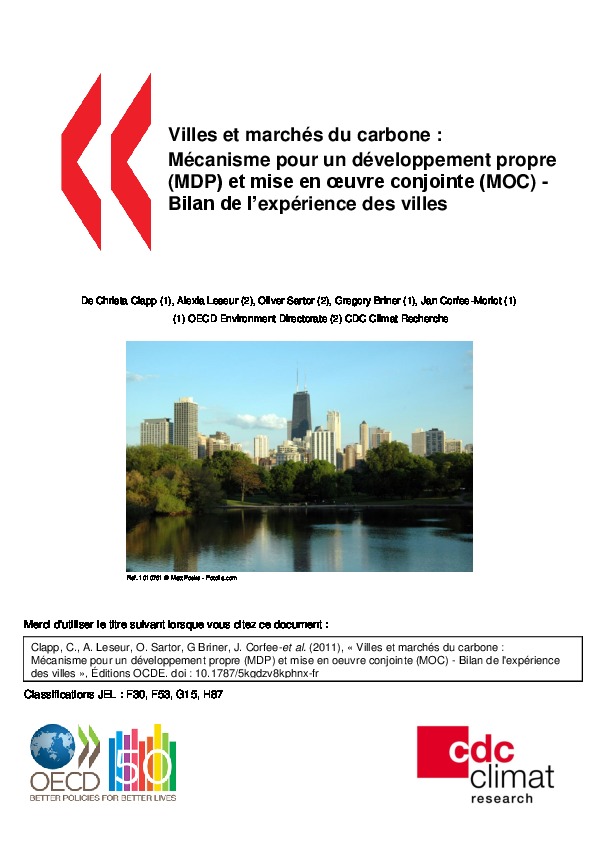Cities and Carbon Market Finance: Taking Stock of Cities’ Experience with Clean Development Mechanism (CDM) and Joint mplementation (JI)
By Christa CLAPP, Alexia LESEUR, Olivier SARTOR, Gregory BRINER, Jan CORFEE-MORLOT
The importance of cities in climate policy stems from the simple reality that they house the majority of the world‟s population, two-thirds of world energy use and over 70% of global energy use emissions. At the international level, global carbon markets have become an important new source of financing for mitigation projects and programmes. Yet to date, the participation of urban authorities and of urban mitigation projects in the global carbon market remains extremely limited. The under-representation of urban carbon projects can be linked both to the difficulties to implement urban mitigation projects and to the difficulties for cities to access the carbon market. This paper reviews 10 in–depth case studies of urban projects proposed and operating within the realm of Joint Implementation (JI) and the Clean Development Mechanism (CDM) of the Kyoto Protocol. It explores the drivers of success for projects, examining in particular: types of projects that have been successful and their profitability; leadership and other roles of various actors in project initiation development and operation (i.e. local, regional and national governments as well as international, private sector or other non-governmental organisations); the role of local co-benefits; and project financial structure and risk management approaches. This paper also considers how these lessons learned may inform decisions in the future about how to best tap the potential for carbon markets to offer increased levels of financial support for urban mitigation projects or programmes.
